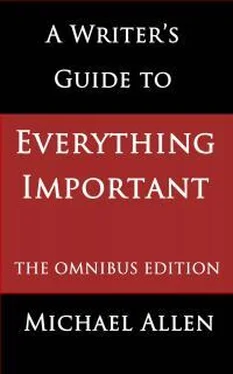Further down the famous and successful list, consider the experience of Elisabeth Naughton
Elisabeth is a really interesting case-study, because she began her career in traditional publishing, working through well-known mass-market firms such as Dorchester and Sourcebooks. Elisabeth was never a big seller. She was what’s known as a mid-list author; or even lower on the chain. Her contracts were, as she puts it, crappy, but hey – she was a published writer, OK? Respect! Prestige! Money! She had all the accolades of being a published author – her books were on bookstore shelves and in airports, she was getting rave reviews, she was a top seller in romance for Sourcebooks, and she even hit the USA Today bestsellers list.
But actually Elisabeth found that she was spending more money on promoting her books than she was earning in royalties. She used to go to romance readers’ conferences and mix with the fans, spending money on air fares and hotels. And she spent money on promotional materials. So, after careful thought, she backed away from traditional publishing. She got her rights back from Dorchester and became an indie publisher.
Tucked away on her hard drive Elisabeth had an unpublished book called Wait for Me. This novel had been rejected by several literary agents because, as they put it, it straddled genres. But Elisabeth believed in it, and published it herself in ebook form. Wait for Me then proceeded to hit every major ebook bestseller list, and it continues to sell very well.
In 2011, Elisabeth’s tax return showed negative income: in other words, her expenses as a writer amounted to more than she earned. In 2012, as a self-publisher, she reported six figures on the positive side; in 2013 she was approaching the seven-figure mark. But remember – she wrote for ten years without making a penny when expenses were taken into account.
In the UK, another writer, Janet MacLeod Trotter, has done much the same thing. In 2012, Janet’s novel The Tea Planter’s Daughter was one of the top ten bestselling Kindle ebooks on Amazon.co.uk. And it’s particularly interesting because this book has history.
The clue to its history was provided by a statement, on the Amazon page for the book, that it was long-listed for the Romantic Novelists’ Association Romantic Novel of the Year Award in 2008. So it obviously wasn’t a new book in 2012.
I wanted to know more, and my first research stop was the catalogue of my local library. A search here reveals that this book was first published by Headline in 2007, when it had the title The Tea Planter’s Lass ; a paperback came from Headline a year later. (Just in case you’re new to this business, let me say that Headline is a major UK publisher of commercial fiction, and many authors would give a couple of teeth to be put on their list.) In addition to the hardback and paperback editions, there are also CD and cassette versions of a talking-book edition, and a large-print edition from Magna.
If you move on to Janet MacLeod Trotter’s own web site, it turns out that she is the author of 16 books which were published through Headline, beginning in 1993; most of these fall into the family saga or women’s fiction category. She also writes crime fiction under the name J.M. MacLeod.
Furthermore – and this is where it begins to get really interesting – Janet’s web site tells us that she now runs a ‘micro publishing business, specialising in paperbacks and ebooks.’ Its name is MacLeod Trotter Books (MTB).
Back to Amazon again, and we find that MTB has 34 books on its list, including the ones previously published by Headline. And Headline, for its part, no longer lists Janet’s name on its list of authors.
So. The 2012 list of Amazon indie-author successes contains an author who has now seen the digital light, dropped all connection with old-time publishing, and reissued a ‘dead’ book five years later. By giving it a new title and a new cover (using a family photograph), Janet has turned the novel into a top-ten ebook bestseller. In addition, she’s self-publishing new editions of all her old output, in both digital and paperback versions, through her own imprint.
3.7 The future of traditional publishing
Today , every blog and every book-world discussion forum is full of speculation about the book-publishing world. Will the Big Five publishers (as they are now) go the way of the famous names in photography, and collapse into insolvency? And if so, when?
I am not going to add to this speculation. If you seek evidence, to argue for survival and continued prosperity on the one hand, or an early demise on the other, it is difficult to find anything really convincing. The Big Five put out profit reports which indicate continued success. But then they would do that, wouldn’t they? Immediately prior to collapse, and the demand for government bailouts, all the big banks were very optimistic in their public statements. And likewise you can find analysts who see nothing but decline in the Big Five figures – such of them as they believe. We shall see.
What I will say is that fiction, in particular, lends itself beautifully to the ebook medium. And if you are a novelist you would be unwise, in my opinion, to bother with anything other than self-publication. On the other hand, if you are an academic historian and wish to publish a learned volume embodying the results of your ten years of research into the causes of the first world war, then your best plan is undoubtedly to woo one of the long-established university presses, and to seek publication in printed form (probably with maps and photographs, which ebooks really can’t cope with).
The only other thing I will add is that writers are assuredly noticing that publishers are behaving as if they need to conserve money. Faced with the possibility of economic disaster, publishers are offering much reduced advances against royalties. Furthermore, the blogger and novelist M.J. Rose reports from New York that publishers are now looking to writers to provide their own marketing budget! This is being dressed up as an investment in their own talent. And are the publishers offering a larger royalty as compensation for this investment? Are they heck. Instead they’re complaining that authors always got too much of the money anyway. This proposed financial ‘investment’, please note, is on top of the investment of time and energy which writers are already expected to put in by giving interviews and lectures, attending signing sessions, and so forth.
For insight into the future, take a look at what such big names in publishing consultancy as Clay Shirky, Jason Epstein, and Mike Shatzkin have been saying recently (Google will help). What you will find is that they offer a bewildering variety of forecasts. But one thing they are agreed on: the traditional book-publishing model is broken. Says Shatzkin, with reference to firms such as Random House and Hachette, ‘That kind of publishing can’t exist a lot longer.’ Certainly, no group of businesses which currently stand between an author and her readers can afford to be complacent; that includes agents, publishers, printers, wholesalers, and bookshops.
Why are publishing strategists gathering together in forums such as the annual Tools of Change for Publishing conference? Answer, because vast sums of money will shortly be made or lost, depending on how smart you are. All you have to do is figure out how to create a new internet-based entity which will provide a really efficient service for readers, writers and digital publishers. Fortunes will be earned by the smart thinkers; bankruptcy will be the lot of those who miscalculate.
3.8 What’s a poor writer to do?
If you’ve read as far as this, you are presumably a writer of some sort, and you’re probably interested in full-length fiction. You’ve been brought up to feel that you really won’t be able to hold your head up in polite society unless you’re published in printed-book form, preferably hardback, and visibly on sale in every bookshop that your family and friends are ever likely to go into.
Читать дальше












